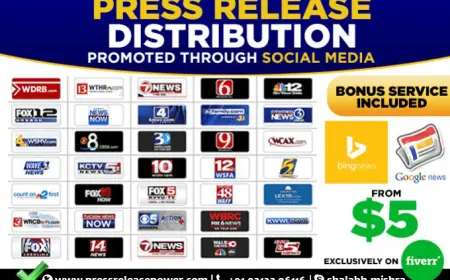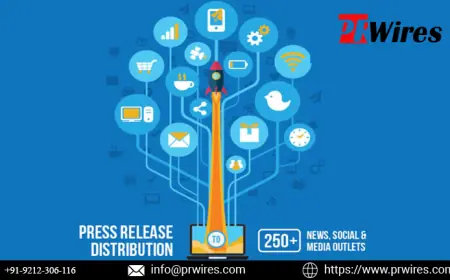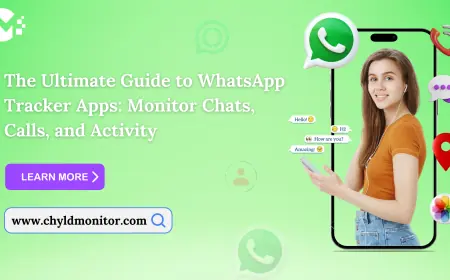Education PPC Campaigns | Advertise E-learning
Advertise E-learning
Pay-per-click (PPC) advertising is a powerful tool for educational institutions and e-learning platforms to reach potential students and learners. However, running an effective PPC campaign requires careful planning and execution. Mistakes in 7Search PPC can lead to wasted budgets and missed opportunities. Here, we’ll explore seven common mistakes to avoid in education PPC campaigns to help you optimize your ads and achieve better results.
Advertise Now!
Understanding the Importance of PPC in Education Marketing
PPC advertising allows educational institutions to target specific demographics and keywords, ensuring that their ads reach individuals actively seeking educational opportunities. For online e-learning platforms, PPC is crucial for driving targeted traffic and increasing course enrollments. Understanding the nuances of PPC can help institutions leverage it effectively.
Ignoring Keyword Research
Why Keyword Research Matters
Keyword research is the foundation of any successful PPC campaign. For education PPC campaigns, selecting the right keywords is crucial for reaching potential students. Ignoring this step can result in targeting irrelevant or overly broad keywords that do not attract the right audience.
How to Conduct Effective Keyword Research
To avoid this mistake, start by identifying keywords that prospective students might use when searching for educational programs. Use tools like Google Keyword Planner, SEMrush, or Ahrefs to find relevant keywords. Focus on long-tail keywords that are specific to your programs and have lower competition.
Overlooking Ad Copy Relevance
The Role of Ad Copy in PPC Success
Your ad copy is what potential students will see first. If your ad copy is not relevant to the keywords you’re targeting or doesn’t communicate the value of your programs, you’ll likely see low click-through rates (CTR) and poor conversion rates.
Crafting Compelling Ad Copy
Ensure your ad copy aligns with the keywords and highlights the unique selling points of your educational programs. Include clear calls to action (CTAs) and relevant information, such as program benefits, deadlines, or special offers. Test different variations of your ad copy to see which resonates best with your audience.
Neglecting Landing Page Optimization
Importance of a Well-Optimized Landing Page
Even if your ad copy is compelling, directing users to a poorly designed or irrelevant landing page can hurt your campaign’s performance. The landing page is where users decide to enroll or learn more, so it must be optimized for conversions.
Tips for Optimizing Your Landing Page
Ensure your landing page matches the ad’s message and provides a clear path for users to take action. Include persuasive content, testimonials, and easy-to-use forms. Make sure the page loads quickly and is mobile-friendly. A/B testing different landing page elements can also help improve performance.
Not Utilizing Negative Keywords
Why Negative Keywords Are Crucial
Negative keywords help prevent your ads from showing up for irrelevant searches, saving you money and improving your campaign’s effectiveness. For example, if you’re advertising a paid course, you might want to exclude searches related to free resources.
How to Implement Negative Keywords
Regularly review your search term reports to identify irrelevant queries and add them as negative keywords. This will help refine your audience targeting and reduce wasted spend.
Failing to Monitor and Adjust Bids
The Impact of Bid Management
Effective bid management ensures that you’re getting the most value out of your PPC spend. Without proper monitoring and adjustments, you might end up overpaying for clicks or missing out on valuable traffic.
Strategies for Effective Bid Management
Regularly review your campaign performance and adjust your bids based on the data. Consider factors such as keyword performance, competition, and budget. Use automated bidding strategies offered by platforms like Google Ads to optimize your bids.
Disregarding Ad Scheduling
The Benefits of Ad Scheduling
Ad scheduling allows you to show your ads at specific times when your target audience is most active. Not using this feature can lead to inefficiencies and wasted budget.
How to Utilize Ad Scheduling
Analyze your campaign data to identify peak times when your audience is most likely to engage. Set your ad schedule to display ads during these high-performing periods. This can help maximize your ad spend and improve overall campaign performance.
Not Analyzing and Leveraging Data
The Value of Data Analysis
Data analysis is essential for understanding the effectiveness of your PPC campaigns. Without analyzing performance metrics, you’ll miss opportunities to optimize and improve your campaigns.
How to Analyze PPC Data
Regularly review key metrics such as CTR, conversion rate, cost-per-click (CPC), and return on ad spend (ROAS). Use this data to make informed decisions about keyword adjustments, bid strategies, and ad copy improvements. Tools like Google Analytics and PPC platform reports can provide valuable insights.
The Role of Automation in Education PPC Campaigns
As PPC platforms continue to evolve, automation tools have become increasingly important for managing and optimizing campaigns. These tools can save time, improve efficiency, and help achieve better results.
Leveraging Automated Bidding Strategies
Automated bidding strategies use machine learning to adjust your bids in real time based on performance data. For education PPC campaigns, strategies such as Target CPA (Cost Per Acquisition) or Target ROAS (Return on Ad Spend) can help optimize bids to meet your specific goals. By allowing the platform to handle bid adjustments, you can focus on other aspects of your campaign.
Utilizing Ad Automation Tools
Ad automation tools can streamline the process of creating and managing ads. These tools can generate ad variations, schedule ads, and automatically adjust budgets based on performance. Automation helps ensure that your ads are always optimized for the best possible results.
Best Practices for Ad Copy and Creative
Creating compelling ad copy and creativity is essential for capturing the attention of potential students. Here are some best practices to keep in mind:
Highlight Unique Selling Points
In your ad copy, highlight the unique aspects of your educational programs. Whether it's expert instructors, flexible schedules, or specialized content, make sure these selling points are prominently featured to attract the right audience.
Use Engaging Visuals
Visuals play a crucial role in grabbing attention and driving engagement. Use high-quality images or videos that reflect your educational programs and resonate with your target audience. Ensure that visuals are relevant and support your ad's message.
Test Different Ad Formats
Experiment with various ad formats, such as text ads, display ads, and video ads, to see which formats perform best for your audience. Different formats can offer unique advantages and help you reach potential students in different ways.
Addressing Common Challenges in Education PPC
Running education PPC campaigns comes with its own set of challenges. Addressing these challenges effectively can improve your campaign's success.
Dealing with High Competition
Educational sectors often face high competition, especially for popular programs and keywords. To stand out, focus on niche keywords, create highly relevant ad copy, and leverage targeting options to reach specific audience segments.
Managing Budget Constraints
Budget constraints can limit your ability to compete for high-cost keywords. To manage your budget effectively, prioritize your spending on high-performing keywords and adjust bids based on performance. Consider using ad scheduling to optimize your budget allocation.
Adapting to Changes in Platform Algorithms
PPC platforms frequently update their algorithms and features. Staying informed about these changes and adapting your strategies accordingly is crucial for maintaining campaign performance. Regularly review platform updates and adjust your campaigns as needed.
The Future of PPC in Education Marketing
As technology and trends evolve, the future of PPC in education marketing will likely bring new opportunities and challenges. Staying ahead of these changes will be key to continuing success in your PPC campaigns.
Embracing Emerging Technologies
Emerging technologies such as artificial intelligence (AI) and machine e-learning are expected to play a larger role in PPC advertising. These technologies can offer advanced targeting options, predictive analytics, and more personalized ad experiences. Keeping up with these advancements can give you a competitive edge.
Focusing on User Experience
User experience (UX) will continue to be a critical factor in PPC success. Ensuring that your ads, landing pages, and overall campaign experience are user-friendly and engaging will be essential for attracting and converting potential students.
Incorporating Multichannel Strategies
Integrating PPC with other marketing channels, such as social media and email marketing, can enhance your overall strategy. A multichannel approach allows for a more comprehensive reach and can improve the effectiveness of your campaigns.
Conclusion
Avoiding these common mistakes in education PPC campaigns can help you optimize your e-learning advertising efforts and achieve better results. You can create more effective campaigns that attract the right audience and drive meaningful engagement by focusing on keyword research, ad copy relevance, landing page optimization, and data analysis. Regularly reviewing and adjusting your strategies will ensure that your PPC campaigns remain effective and aligned with your educational goals.
Frequently Asked Questions (FAQs)
What is the best way to choose keywords for an education PPC campaign?
Ans: Focus on long-tail keywords that are specific to your educational programs and have lower competition. Use keyword research tools to identify terms that potential students are searching for and align them with your program offerings.
How often should I review and adjust my PPC campaigns?
Ans: You should review your PPC campaigns regularly, ideally on a weekly or bi-weekly basis. This allows you to stay on top of performance metrics, adjust bids, and refine your strategies based on the latest data.
What are some effective strategies for optimizing landing pages?
Ans: Ensure your landing page is relevant to your ad copy, includes clear CTAs, and is optimized for both desktop and mobile devices. A/B tests different elements such as headlines, images, and forms to see which versions drive the best results.
How can I identify and use negative keywords effectively?
Ans: Regularly review your search term reports to identify irrelevant or low-performing queries. Add these terms as negative keywords to prevent your ads from showing up for those searches and to improve targeting efficiency.
Why is ad scheduling important for education PPC campaigns?
Ans: Ad scheduling helps you display your ads during times when your target audience is most active. This can lead to better engagement, reduced wasted spend, and improved overall campaign performance.
What's Your Reaction?
 Like
0
Like
0
 Dislike
0
Dislike
0
 Love
0
Love
0
 Funny
0
Funny
0
 Angry
0
Angry
0
 Sad
0
Sad
0
 Wow
0
Wow
0
















































